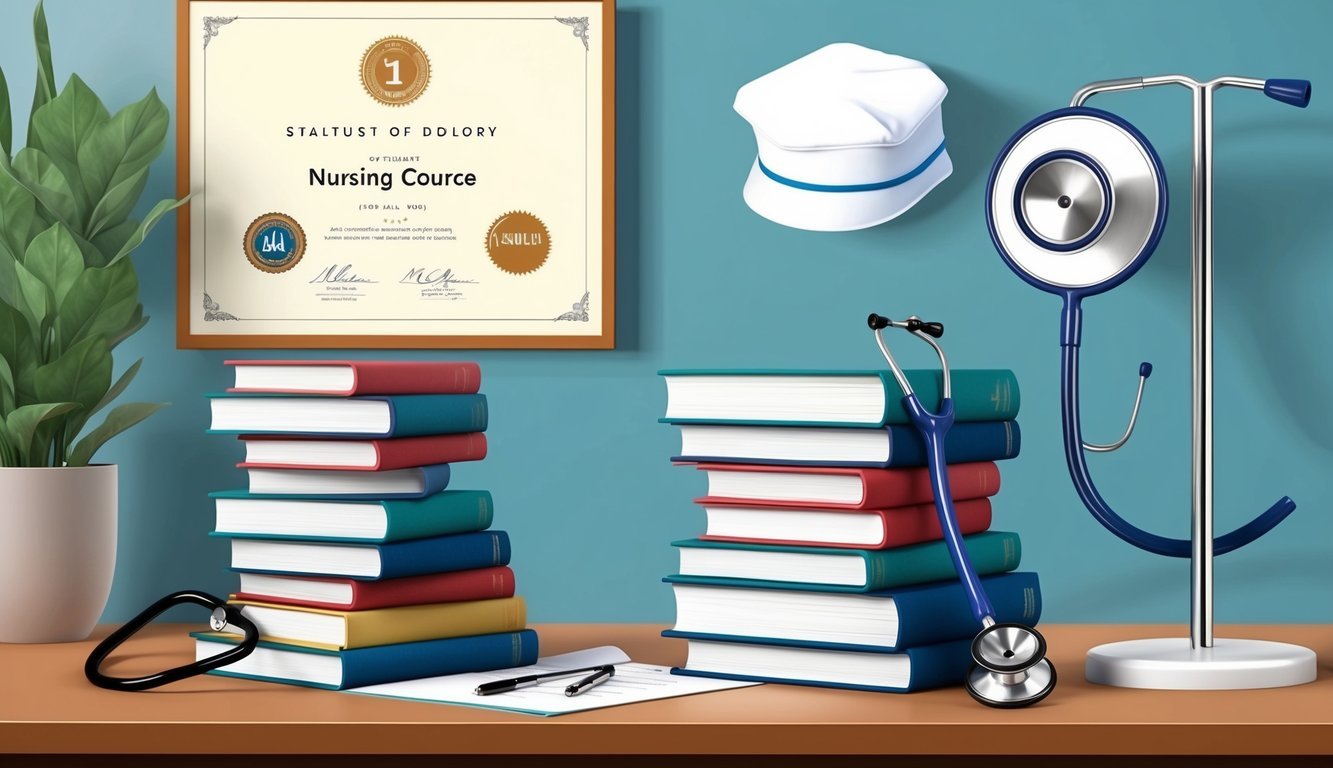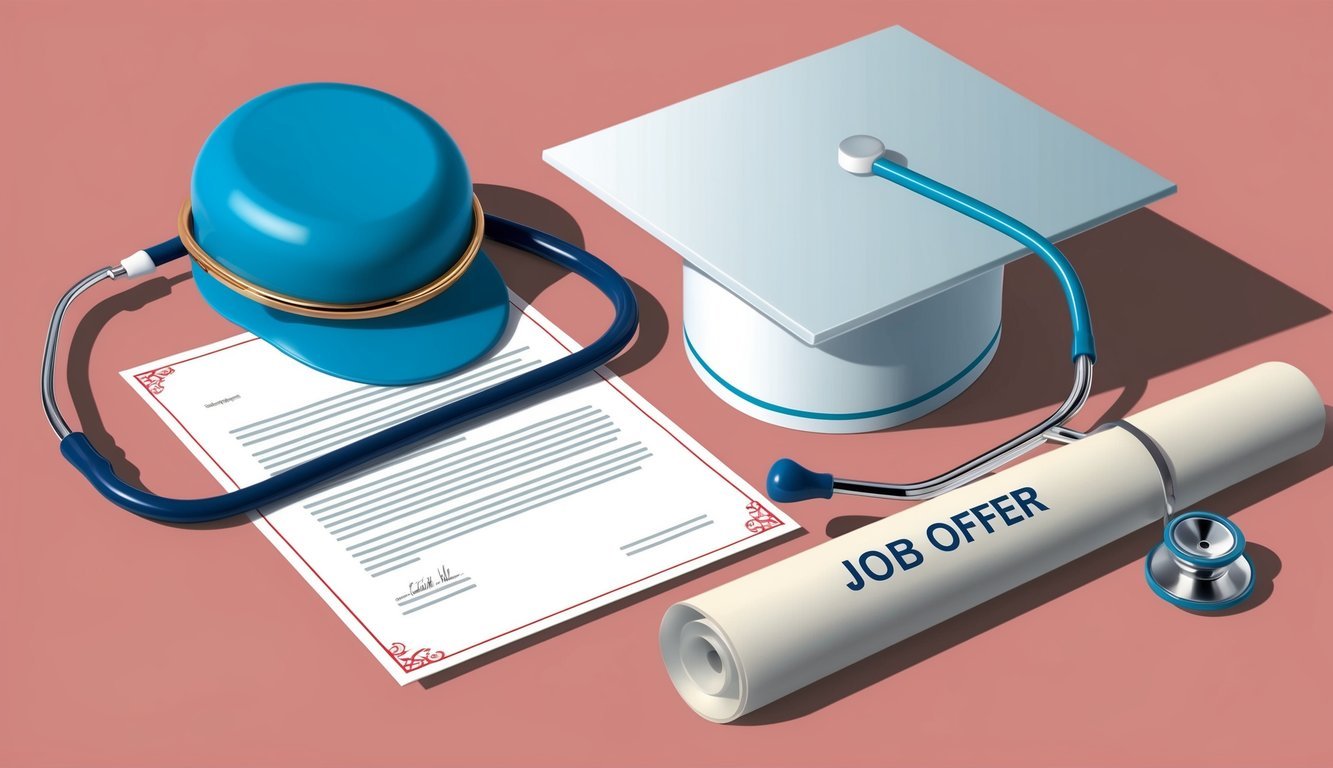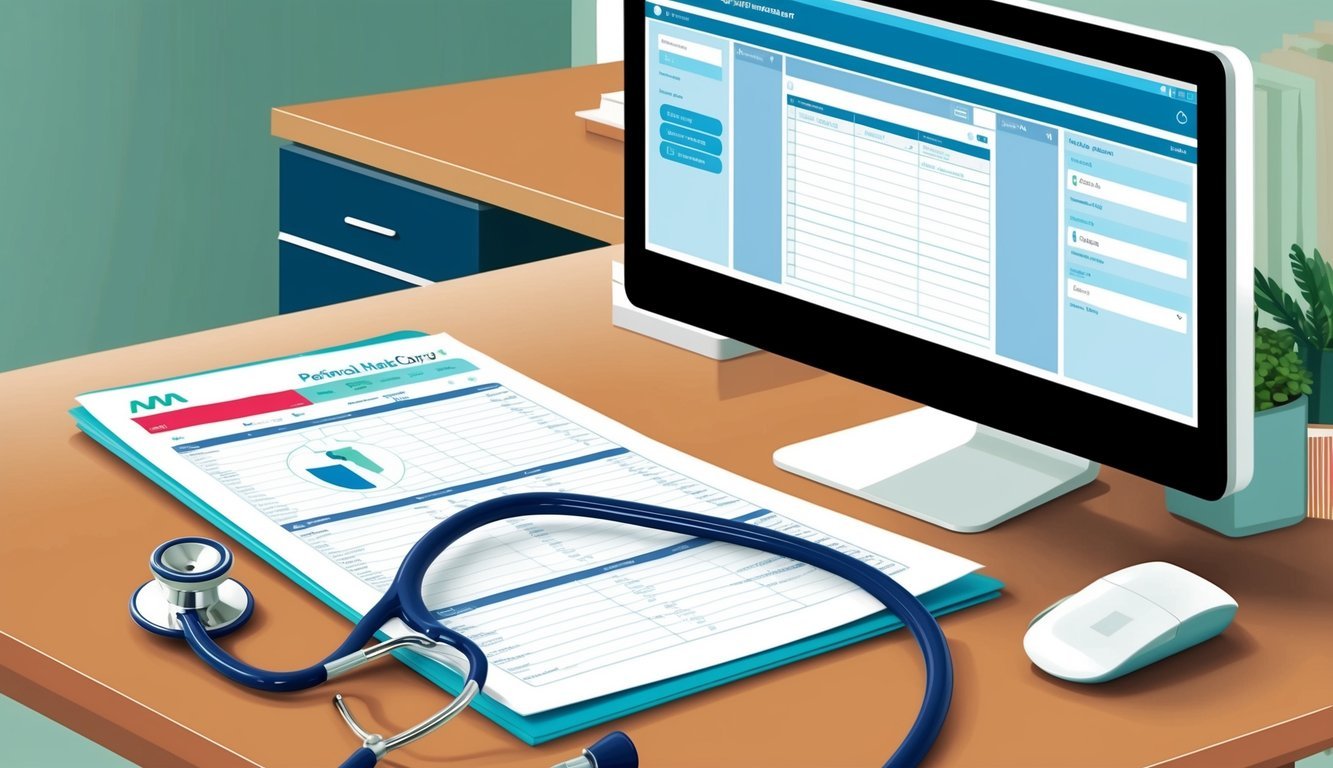Transitioning from an RN to an MSN can significantly elevate your nursing career.
Pursuing a Master of Science in Nursing helps you gain advanced clinical knowledge and opens doors to leadership roles and specialized practices.
This program is particularly beneficial for registered nurses looking to enhance their skills and elevate their impact in the healthcare field.
For those with an Associate Degree in Nursing (ADN), many programs offer bridge courses that facilitate the journey from RN to MSN.
As you explore various pathways, consider options that allow you to earn both a Bachelor of Science in Nursing (BSN) and an MSN.
Programs such as those at Western Governors University are designed to accommodate your schedule, enabling you to complete your degree at your own pace.
In a rapidly evolving healthcare landscape, investing in your education through an RN to MSN program is a smart move.
You’ll be equipped with the necessary tools to not only treat patients more effectively but also educate the next generation of nurses, engage in research, or take on administrative roles.
This degree can be a key factor in achieving your professional goals and making a meaningful contribution to the nursing profession.
Exploring RN to MSN Programs
RN to MSN programs serve as a bridge for registered nurses seeking advanced education in nursing.
These programs facilitate the transition from a registered nurse (RN) to a Master of Science in Nursing (MSN), often allowing you to specialize in areas like Nurse Practitioner or Nurse Educator while balancing work and personal commitments.
What is an RN to MSN Program?
An RN to MSN program enables RNs with an Associate Degree in Nursing (ADN) to pursue a master’s degree in nursing without obtaining a Bachelor of Science in Nursing (BSN).
This streamlined pathway often includes bridge courses to prepare you for graduate-level studies.
Key features may include:
- Accelerated Options: Programs can often be completed in less time compared to traditional paths.
- Specialization: You can choose to focus on areas like Nursing Administration or Nursing Education.
- Flexibility: Many options are available, accommodating different schedules and responsibilities.
For detailed insights, refer to Incredible Health.
Types of RN to MSN Programs
RN to MSN programs can vary significantly based on structure and requirements.
Here are common types:
-
Bridge Programs: These are designed specifically for ADN holders. They provide foundational knowledge to transition into graduate-level coursework.
-
Direct Entry Programs: For RNs without a BSN, these programs allow entry directly into the MSN track, often concluding with Nurse Practitioner certification.
-
Online RN to MSN Programs: Many institutions offer fully online formats, promoting flexibility for working nurses. You can complete coursework at your own pace while managing professional commitments.
You can learn more about the options available at Nurse.org.
Online vs. Traditional Programs
When considering RN to MSN programs, you’ll encounter both online and traditional classroom formats.
Each has unique advantages:
| Feature | Online Programs | Traditional Programs |
|---|---|---|
| Flexibility | High—study at your own pace | Limited schedule availability |
| Classroom Interaction | Minimal face-to-face time | In-person engagement |
| Location Convenience | Anywhere with internet access | Must attend on-campus classes |
| Program Length | Often shorter due to accelerated options | May vary depending on the schedule |
Online RN to MSN programs provide greater flexibility, especially for those balancing work or family responsibilities.
As noted by allnurses, these formats are designed to meet the needs of busy professionals.
Consider your personal circumstances and learning preferences when deciding between these pathways.
Admission Requirements and Application Process
Understanding the admission requirements and application process is vital for aspiring students of RN to MSN programs.
This section outlines essential criteria, necessary application components, and important deadlines to help you navigate your path effectively.
Minimum Eligibility Criteria
To qualify for most RN to MSN programs, you must meet specific eligibility criteria.
Generally, applicants are required to hold an active registered nurse (RN) license.
Additionally, many programs accept those with an Associate Degree in Nursing (ADN) or a nursing diploma, although some may prefer candidates with a Bachelor of Science in Nursing (BSN).
A minimum GPA of 3.0 is commonly required.
Some schools may also request that you submit GRE scores, although this requirement varies by institution.
Before applying, ensure you have all necessary credentials, as individual programs may have unique prerequisites that are essential to meet.
Application Components
Your application typically includes several vital components.
First, you will need to submit official transcripts from all post-secondary institutions attended.
This documentation is crucial in demonstrating your educational background.
Additionally, many programs require a personal statement or essay that outlines your professional goals and motivations for pursuing an MSN.
Some schools may also request references or letters of recommendation from nursing professionals.
Certain programs may interview prospective students as part of the selection process.
This personal interview helps admissions committees assess your fit for the program.
Prepare thoroughly to articulate your aspirations and experiences during this important step.
Admission Deadlines and Tips
Admission deadlines vary by program but often fall within the spring or fall semesters.
It’s important to check the specific dates for each institution you are interested in.
Early preparation can be advantageous in ensuring all materials are submitted on time.
Consider creating a checklist to track each component of your application process, including transcripts, essays, and recommendations.
Additionally, reach out to admissions counselors for any clarifications regarding requirements or deadlines.
Timely communication and thorough preparation can significantly enhance your chances of gaining admission.
Staying organized will ensure that you present the best application possible.
For further information, consult websites like NursingProcess.org for resources related to individual programs and their admission requirements.
Curriculum and Specializations

The RN to MSN program offers a comprehensive curriculum designed to equip you with advanced nursing skills and knowledge.
You will engage in core courses, specialty tracks, and hands-on clinical experiences to prepare for various nursing roles.
Core MSN Courses
In your journey through the RN to MSN program, you will encounter essential core courses.
These subjects typically include Nursing Theory, Health Policy, and Nursing Research.
Each course builds a strong foundation for advanced practice.
Here are some common core courses you may take:
| Course | Focus |
|---|---|
| Nursing Leadership | Strategies for effective management in healthcare settings. |
| Nursing Informatics | Integration of technology in patient care and data management. |
| Advanced Pathophysiology | In-depth understanding of disease processes. |
These courses ensure you develop critical thinking and leadership skills necessary for advanced nursing practice.
Specialty Tracks and Electives
Your RN to MSN program allows you to choose from various specialty tracks that align with your career goals.
Common specializations include:
- Family Nurse Practitioner (FNP): Focuses on providing holistic care across all ages.
- Adult-Gerontology Primary Care Nurse Practitioner: Emphasizes care for adolescents, adults, and older adults.
- Nursing Leadership: Prepares you for roles in healthcare management and policy-making.
Engaging with electives offers you an opportunity to customize your education further, integrating your interests and desired career path within nursing.
Clinical and Practicum Requirements
Clinical practice experiences are crucial in your RN to MSN program.
These experiences provide real-world application of your learned skills.
Programs typically require significant clinical hours, which can range up to 540 hours through in-person clinical rotations.
During your clinical placements, you will:
- Work alongside experienced professionals in diverse settings.
- Practice skills relevant to your chosen specialty.
- Develop competencies necessary for advanced patient care.
Participating in clinical practice will enhance your readiness for advanced nursing roles and facilitate the attainment of your MSN degree.
MSN Program Outcomes and Career Opportunities

Graduating from an MSN program offers a range of skills and opens various career paths, enabling you to significantly impact healthcare.
As an MSN graduate, you can pursue advanced roles that focus on leadership, education, and specialized clinical practice.
Skills Acquired
In an MSN program, you develop critical skills essential for advanced practice.
These include:
- Clinical Proficiency: Enhanced assessment skills for diagnosing and managing patient care.
- Leadership Abilities: Training in leading nursing teams and managing healthcare settings.
- Research Competence: Understanding how to critically evaluate and apply research to improve clinical practices.
- Health Policy Knowledge: Insight into healthcare policies that affect nursing and patient care.
These skills prepare you for roles such as a nursing leader or nurse educator.
They also enable you to contribute to population health initiatives and advocate for better healthcare policy.
Certification and Licensure
Upon completing your MSN program, you may pursue various certifications, depending on your area of focus.
Key certifications include:
- Nurse Practitioner (NP): Requires passing a national board certification.
- Nurse Anesthetist (CRNA): Involves specific requirements for anesthesia practice.
- Nurse Midwife (CNM): This requires certification that validates your skills in obstetric care.
Each certification generally requires continuing education and adherence to state licensure requirements.
Make sure to check with your state’s nursing board for specific details.
Career Paths for MSN Graduates
As an MSN graduate, you have diverse career options.
Here are some notable paths:
| Career Path | Description |
|---|---|
| Nurse Practitioner | Provides primary and specialty care to patients. |
| Nurse Anesthetist | Administers anesthesia and manages pain during procedures. |
| Nurse Midwife | Offers prenatal, delivery, and postpartum care. |
| Nurse Educator | Teaches and trains future nurses in academic settings. |
| Health Policy Analyst | Influences healthcare policies and practices. |
These roles not only build on your clinical knowledge but also empower you to shape the future of healthcare through education, leadership, and innovative practices.
Accreditation and Quality Assurance

Accreditation is a critical component of any RN to MSN program, ensuring that the education you receive meets established standards.
Quality assurance through accreditation not only enhances your learning experience but also boosts your career prospects.
Understanding the importance of accreditation, the bodies involved, and how programs maintain their integrity is essential.
Importance of Accreditation
Accreditation signifies that a program meets rigorous academic and professional standards.
For you, graduating from an accredited RN to MSN program can lead to increased job opportunities and eligibility for advanced practice roles.
Employers often prefer candidates from accredited programs due to the assurance of quality education.
Additionally, accreditation can influence your ability to transfer credits between institutions.
Programs accredited by recognized bodies, such as the Commission on Collegiate Nursing Education (CCNE), are more likely to have their credits accepted by other accredited nursing schools.
This can help you streamline your educational journey and reduce time to degree completion.
Accrediting Bodies and Standards
Several accrediting bodies evaluate nursing programs to ensure they meet educational standards.
The CCNE is one of the most influential organizations that accredits baccalaureate and graduate nursing programs.
Another important body is the Higher Learning Commission (HLC), which oversees regional institutional accreditation.
Here is a brief overview:
| Accrediting Body | Focus Area | Type of Programs Accredited |
|---|---|---|
| CCNE | Nursing | BSN, MSN, DNP |
| HLC | Regional | All higher education fields |
An accredited institution means the program adheres to standards that promote a quality education and continuous improvement.
Make sure your chosen institution has received accreditation from recognized bodies.
Maintaining Program Integrity
To maintain program integrity, nursing schools must regularly undergo assessments and self-evaluations.
Accreditation bodies conduct periodic reviews to ensure that the program stays current with educational standards and healthcare practices.
Programs often implement feedback mechanisms from students and faculty to improve course offerings.
They may also require faculty members to engage in ongoing professional development and remain active in nursing practice to ensure their teaching is relevant and informed.
Staying abreast of changes in accreditation standards and demonstrating compliance is crucial.
Institutions often publish outcomes data, such as graduation rates and employment statistics, to maintain transparency and accountability.
For more information about accredited programs, consider visiting CCNE or HLC.

